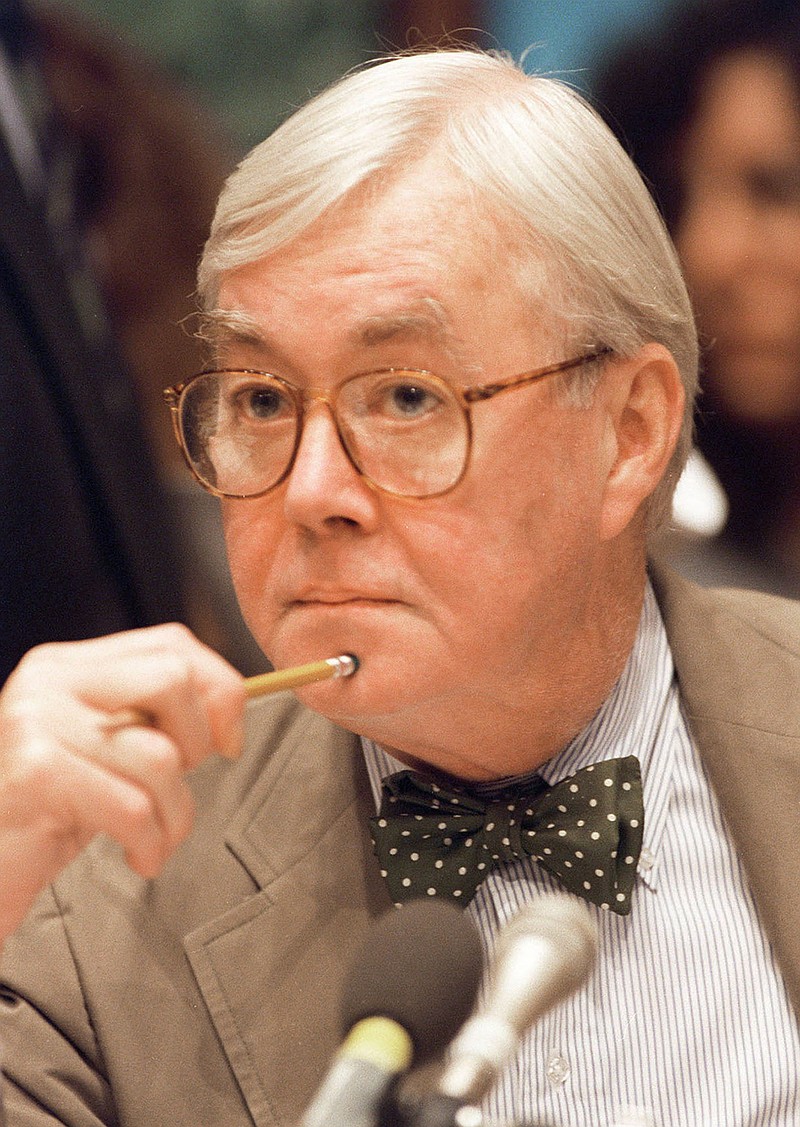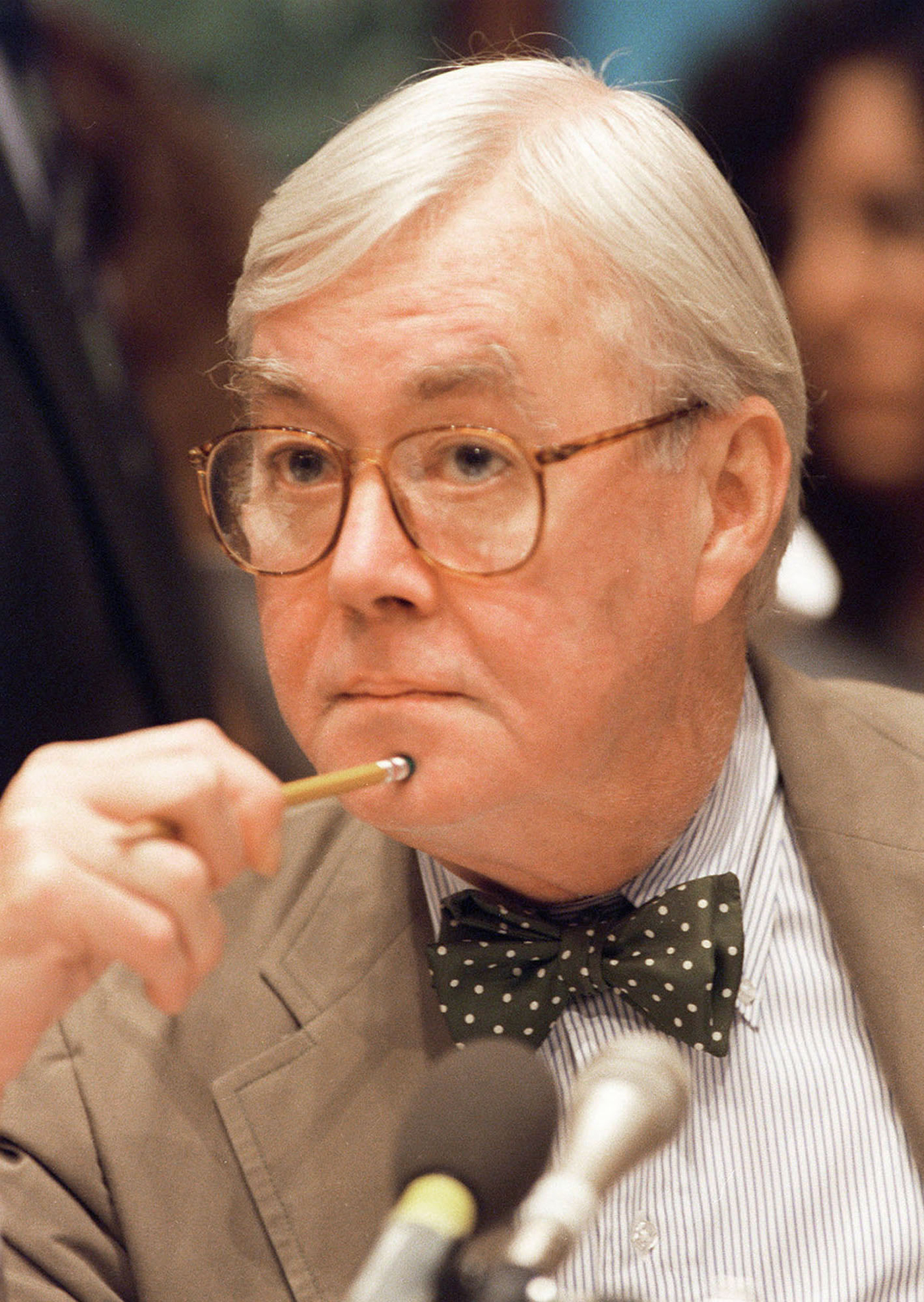Daniel Patrick Moynihan often was teasingly referred to as "Richard Nixon's favorite liberal" because of the time he spent in the Republican president's administration, but he was no closet conservative.
As the author of President Lyndon Johnson's 1965 "Freedom Is Not Enough" speech, which was one of the signals of a number of social programs LBJ would put forth over the next few years, he believed government had a role in helping move more blacks from second-class citizens to contributing members of society.
What Moynihan -- then an assistant secretary of labor -- did not believe in was social transformation, the idea that blacks would make the needed leap due to programs created in the minds of social tinkerers, the idea that remains the overriding guide of Obama-era liberals today.
Instead, he believed in using what already was strong, what was in evidence -- black families, churches, neighborhoods and other organizations -- and in the necessity of jobs.
That's why Moynihan's March 1965 report, "The Negro Family: The Case for National Action," seems so devastatingly prescient today and why some liberals have begun to rethink their previous opposition to his thoughts.
Among its conclusions were that absent fathers often led to inadequately socialized males, that a high percentage of two-parent families was a stronger indicator of high cognitive output than high per-pupil expenditures and that the expansion of welfare programs had causation in the disintegration of the black family structure.
When Moynihan's report leaked in August 1965, it was excoriated by his fellow liberals for being culturally biased, patronizing and even racist. Jesse Jackson, Al Sharpton and others in the race business have, at different times, condemned it.
In short order, he became virtually a non-person in LBJ's administration as it moved full speed ahead in crafting social welfare solutions for problems of the poor and disadvantaged. Leaving the administration the same year, he later worked as an advisor and then ambassador for Nixon and Gerald Ford before winning four terms as a Democratic U.S. senator from New York. He died in 2003.
Today, in the wake of some of Johnson's failed welfare policies that included rewarding incentives for absent fathers, 72 percent of black children are born to single women, only 12 percent of black two-parent families live below the poverty line (compared with 32 percent of white two-parent families), living in a one-parent household reduces the chance a child will graduate from high school by 40 percent, and the unemployment rate for black teens (once routinely the same or lower than that of whites) has never been less than 20 percent in the last 50 years.
Last week, liberal New York Times columnist Nicholas Kristof penned a piece that said Democrats had gotten it wrong for 50 years in pooh-poohing Moynihan's conclusions.
"Moynihan," he said, "was absolutely right to emphasize the consequences for low-income children" and that "because there is often only one income ... children of unmarried moms are roughly five times as likely to live in poverty as children of married couples."
Kristof also cited another essay by Princeton and Harvard researchers that noted "a father's absence increases antisocial behavior, such as aggression, rule-breaking, delinquency and illegal drug use."
Unfortunately, the columnist won't find many believers in the Obama administration, which looks less to historically sound family and religious structures for success than to social engineering. It was something Moynihan worried about, as noted by his words in his 1970 book, "Maximum Feasible Understanding."
"Social science is at its weakest, at its worst, when it offers theories of individual or collective behavior which raise the possibility, by controlling certain inputs, of bringing about mass behavioral change," he said. "No such knowledge now exists. ... [Instead,] the role of social science lies not in the formulation of social policy, but in the measurement of results. The great questions of government have to do not with what will work, but with what does work."
Yet, if Kristof and other liberals can see the continuing problem for what it is, and if conservatives can offer solutions that promote what works, the problem could one day lessen.
Sargent Shriver, head of Johnson's "War on Poverty," once told a questioner he thought it would take "about 10 years" to win the war on poverty. Turning around what hasn't worked for the past 50 years likely will take more than 10 years, but we need to believe it can happen.

